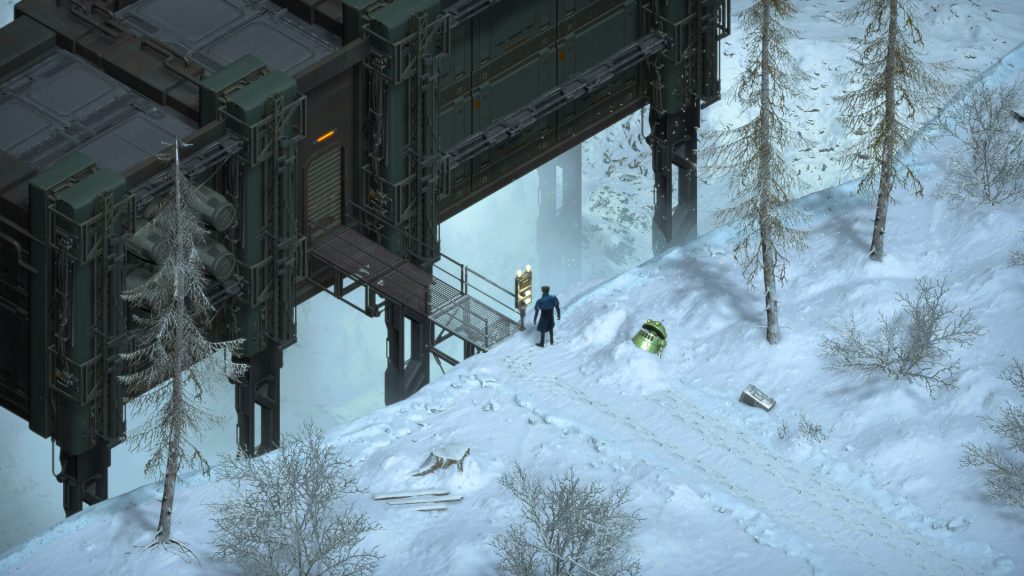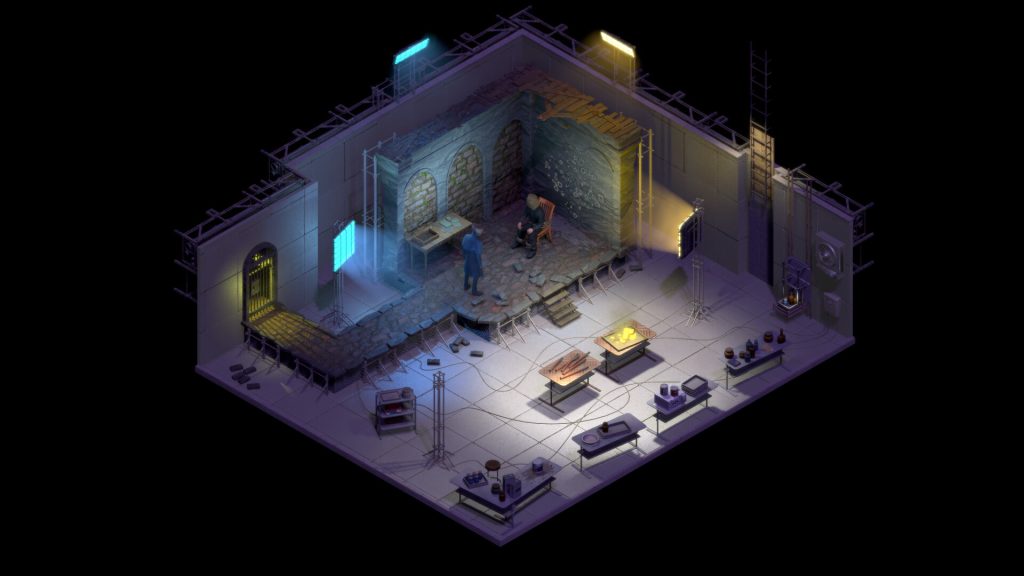Books are fascinating, and bringing them to life is one of my favorite things ever. Seeing mediums not only translate books to video games (Witcher) and Film, but simply exploring the vast ideas that they bring into the world by bridging the words with gameplay is fascinating.
This is where The Bookwalker picks up. You play as Etienne Quist who has been punished for an undisclosed crime. How this is portrayed is fascinating because, in order to escape this punishment, you must accept some criminal deals to steal items from certain books. Think of it as a writer who needs to complete a bunch of contract work before they make the stories they want.
The Bookwalker: Thief Of tales
Developed by: Do My Best | TinyBuild
Platforms: PlayStation 5 (reviewed on), Xbox Series X|S, PCs
Release Date: June 22, 2023
The game does a great job of trickling in additional details too (like a police force that only targets writers to prevent them from writing). Other aspects like a war, the death of television, the introduction of the internet, and even ideas of other Bookwalkers existing all pop up at just the right moments. It gives you a sense that jumping into these books is a genuine escape from the real world.
Initially you are put in a dinky apartment—in first person view—with very little to do. As you progress, more of the apartment complex opens up and you get to interact with neighbors a little more. Characteristics are slowly built up. A lot of the story is told over phone interactions with various voices and chosen responses by you.
Then you walk out to the hallway to pick up a suitcase, set it on your desk, and jump into various books. Within these books are specific stories like an Industrial world that Thor powers, and within the worlds are specific items you are sent in to retrieve (in this case Thor’s Hammer). I won’t spoil many of the stories, but they were all fascinating and over several stories you explore all genres of books.
Diving into the world takes you from a first-person perspective, to an isometric playstyle. I wasn’t sure if I’d like this style of gameplay at first, but I couldn’t stop playing after I got into it. You are set up to explore the world by roaming around and clicking on objects and people, and you slowly find details about where to go and what that specific story is all about.

This portion of the game is set up with some good puzzle solving, but nothing too complicated. If you can plan ahead you will cut down some game time by not traveling back and forth too many times. For example, the game commonly asks for multiple batteries to progress. So after completing certain areas you can store the battery in your inventory. The best part of the gameplay is I never felt “stuck” at any point. I always felt there was a solution or an area I needed to travel back to in order to progress.
The game also has a few combat sequences which function as turn-based action sequences, but it isn’t too in-depth. I’m not entirely sure if they are programmed to be very tense on purpose, but every battle came down to the wire with A LOT of luck favoring me as enemies missed their final attacks.
Don’t go into this game expecting some thrilling action though.
The best part of the gameplay is that you are sometimes set up for decision making that is very emotionally impactful. Once, I was talking with a friendly robot and he talked about how great the world is and how he was happy to be alive. He just wanted to pet cats. A cat came up, and he got super content just to pet the cat. But then the game tells me I need to remove his batteries…effectively killing him. Once I opened his rear panel to remove the battery he told me doing so would send him to infinite darkness. He explained I should do as I must, but he pleaded to find other options. I never felt so terrible.

It’s the power of writing and how well done it is within the game. You can make swift decisions like this which can anger real world characters or dynamically change relationships. None of the decisions have true impactful story changing dynamics, but the power behind your actions is felt. There were multiple times where I felt I knew where the story was going, then it quickly changed and went in a whole new direction.
The isometric worlds are also vast and vibrant, with great lighting and layout in each area. Everything looks interesting, and you want to explore more just to see different aspects of the world. The sound design and music adds to the experience in a positive way. For instance some areas will light up just as you walk in, and the way objects are presented to you always has some sort of surprise.
The only minor gripe I have is how your character grumbles as a way to talk in the “real world” segments. The rest of the game is presented to you via text dialogue on the screen, and it’s amazing dialogue, but in the real world you have the text and then your character just makes sounds. I would have preferred if the real world was either fully voiced, or stayed quiet.
Overall The Bookwalker ended up being more fascinating than I expected, and it’s a well done game with an interesting story to tell. If you don’t mind text based titles, I highly suggest picking this one up as the gameplay and decision making is extremely engaging, with a well written story to back it all up.

